
Marvel/ Square Enix/ Verizon
There’s such a thing as good video game downloadable content (DLC).
Sure, it’s exceedingly rare, but The Witcher 3 and Ghost of Tsushima prove that DLC can actually be used to vastly expand upon a game instead of just milking players for cash. But those are the exception. From essential story content to entire characters locked behind paywalls at launch, bad DLC is the rule, and unfortunately, it’s a race to the bottom. Here are the worst of the worst:
Marvel’s Avengers Verizon Skins
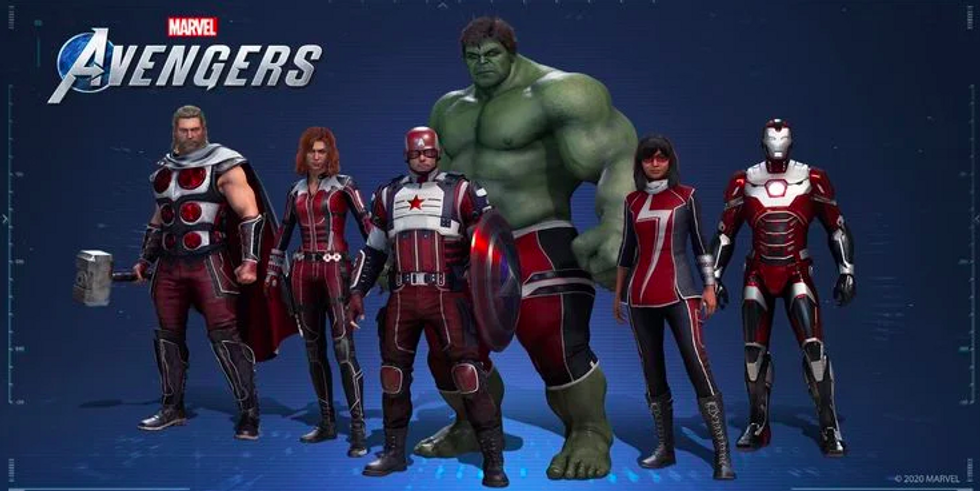
Marvel/ Square Enix/ Verizon
The upcoming Marvel’s Avengers game, developed by Square Enix, could have had so much potential. But while it hasn’t launched yet (at least outside of a relatively buggy beta), the game is already plagued by the grossest sorts of DLC practices. Most prominently, while the game is releasing across multiple platforms, Spider-Man will only be playable on PlayStation 4, meaning that non-PlayStation gamers are paying the same price for a significantly reduced game. This can probably be chalked up to greed and licensing rights on Sony’s part, but the same can’t be said for the Verizon and Virgin exclusive costumes.
Yes, Verizon and Virgin subscribers will gain access to exclusive costumes for their Avengers characters, meaning that in the latest incarnation of our capitalist nightmare, Captain America can actually don Verizon cosplay. Remember when he punched Hitler? Oh, how the mighty have fallen.
Star Wars Battlefront II “Unlockable” Characters
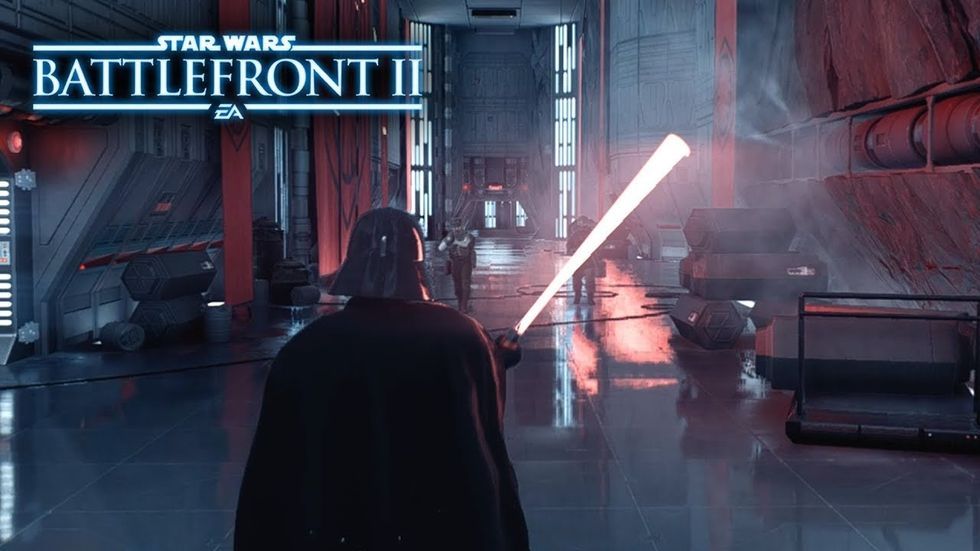
Electronic Arts
Electronic Arts is famous amongst gamers for being the single-largest dumpster fire of a company in the history of mankind. So when they released the hotly anticipated competitive multiplayer game Star Wars Battlefront II, it should have come as no surprise that every playable Star Wars hero character was locked behind a massive loot crate microtransaction system paywall…unless, of course, players wanted to spend roughly 40 hours of playtime unlocking each individual character for free. Oh, and because Star Wars Battfront II was a competitive multiplayer game, the hero characters also had in-game advantages.
Well, maybe it wasn’t surprising, but that didn’t stop players from tearing EA thousands of new @ssholes. The fan furor lead one unfortunate EA support representative to leave a comment on Reddit stating that, “The intent is to provide players with a sense of pride and accomplishment for unlocking different heroes.” This, too, was memed to death, and also downvoted more than any other comment in Reddit history. EA eventually relented and made all of the in-game content much more accessible, but everyone already hates EA so it hardly even matters.
Street Fighter X Tekken “DLC” Characters
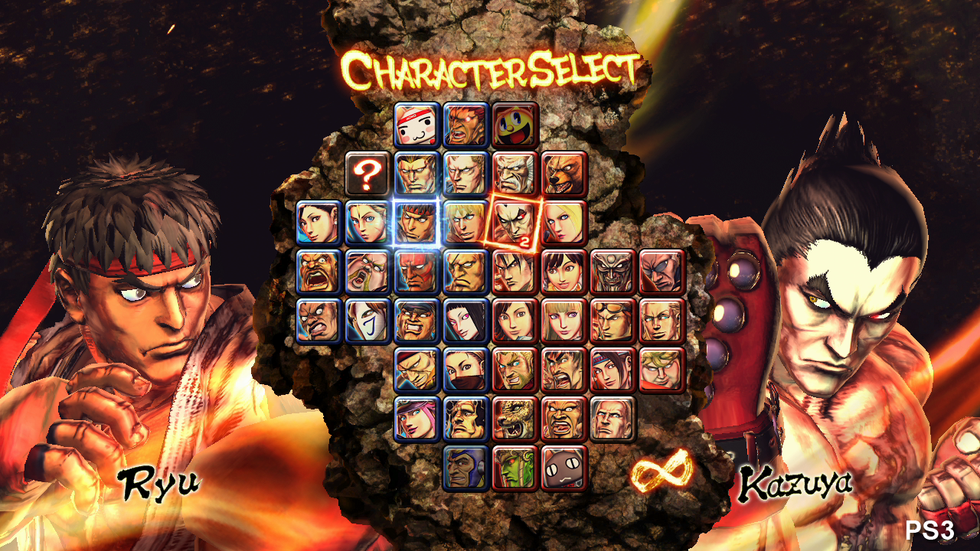
Capcom
When Street Fighter X Tekken—a crossover fighting game between two of the biggest fighting franchises in the entire video game canon—was first announced, fighting game fans were understandably stoked. Unfortunately, the game’s legacy is not one of fist-punching awesomeness, but rather, one of the most flagrant examples of DLC greed in gaming history.
Ideally, DLC should be created after a main game is already completed in order to add onto its longevity. After all, if the “DLC” is ready when the game releases, it’s really just content that was held back in order to make the publisher more money on top of the game’s purchase price, which is not a good look. Street Fighter X Tekken went a step further, with “DLC” in the form of 12 entire playable characters that weren’t just ready when the game came out, but were, in fact, ready and fully available on the disc. The downloadable portion was simply…unlocking them.
At the time (back in 2012, how innocent we were!), this felt like such a flagrant abuse of the whole DLC concept that many players boycotted the game. After this, video game publishers learned the important lesson that even if they were done with their “DLC” content before the game launched, they’d better leave it off-disc.
Battlefield 4 Ultimate Shortcut Bundle
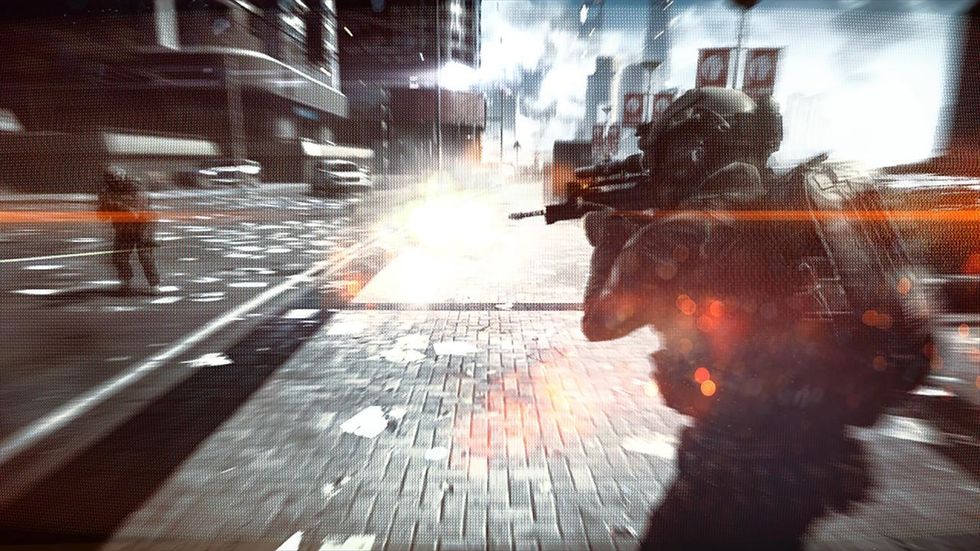
Electronic Arts
Famous as one of the grossest pay-to-win purchases in a mainstream multiplayer shooter game, Battlefield 4‘s “Ultimate Shortcut Bundle” gave players access to every weapon, right off the bat, for the low, low price of $49.99. Normally, players would gain these weapons, which give major in-game advantages against other players, through continued success in online matches.
Now, any kid with access to their parents’ wallets could come on and start wrecking experienced players who hadn’t yet met the required number of wins to properly match-up against their ill-begotten fire power. Such a harebrained scheme could only be devised by the perpetual sh!t-eaters at EA.
Mass Effect 3: From Ashes
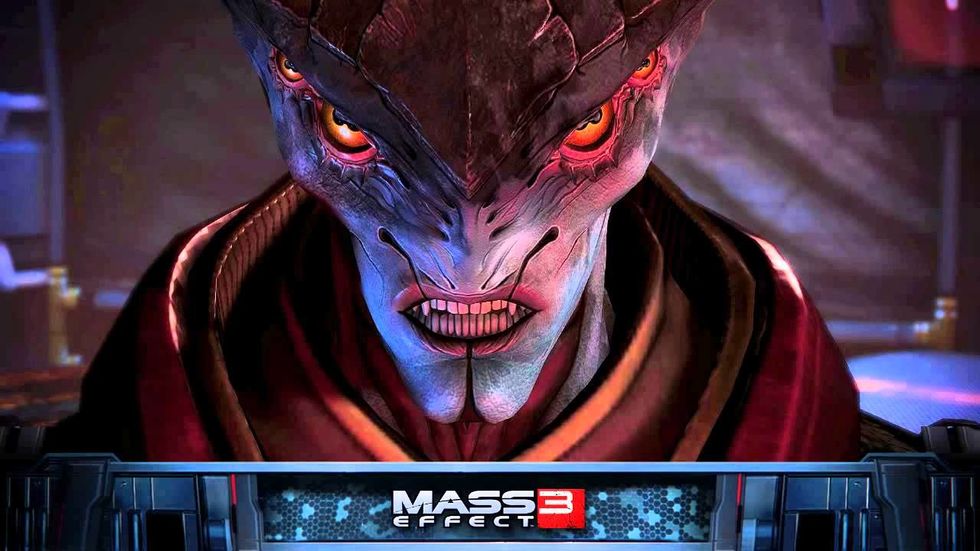
Bethesda
Narrative-heavy games have an extra barrier when it comes to DLC in the sense that any new content still needs to function within the framework of the larger story. Most story-based games that execute DLC well go the “additional chapter” route, adding a new scenario that functions as an addendum either alongside or after the main game.
Mass Effect 3: From Ashes decided to go an entirely different route, locking Javik, a core member of your crew representative of one of the most important alien races in the game, behind a paywall. This would have been mostly okay if Javik felt like a side-character, but the amount of exposition and heft he brings to the core storyline is inexcusable for a any sort of “bonus content.” Essentially, Bioware got away with charging players extra to experience the main story in its entirety.
Asura’s Wrath’s Ending
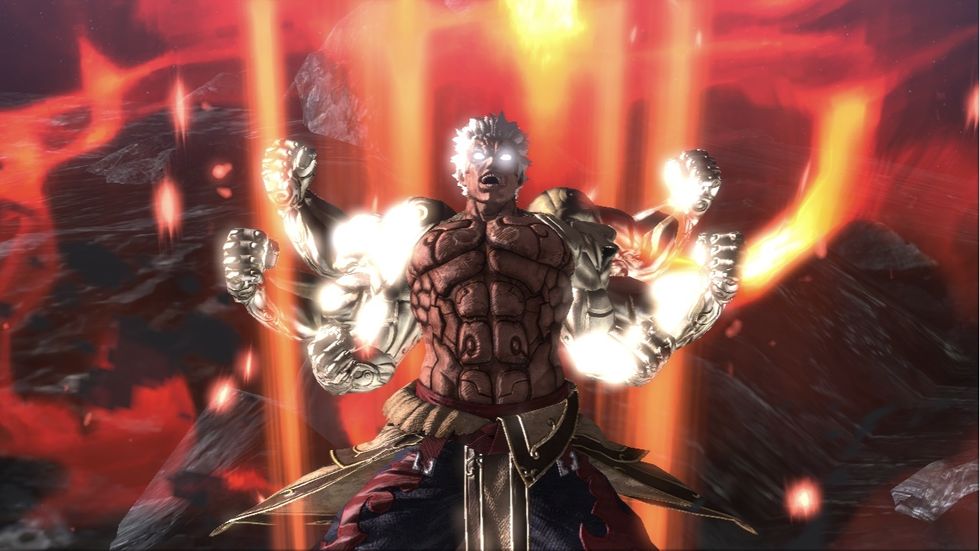
Capcom
If Mass Effect 3 pissed off gamers by locking a main character behind the guise of DLC, Asura’s Wrath took DLC greed to its logical conclusion and locked off the entire ending. Upon beating the “final boss” of the game, players were treated to “To Be Continued”-esque scene promising what most players believed to be a sequel. Instead, a DLC pack released shortly after that contained the game’s real final boss and the actual ending.
There was never a sequel, either, which is a shame because Asura’s Wrath was an otherwise great game.
The Saboteur’s Boobs
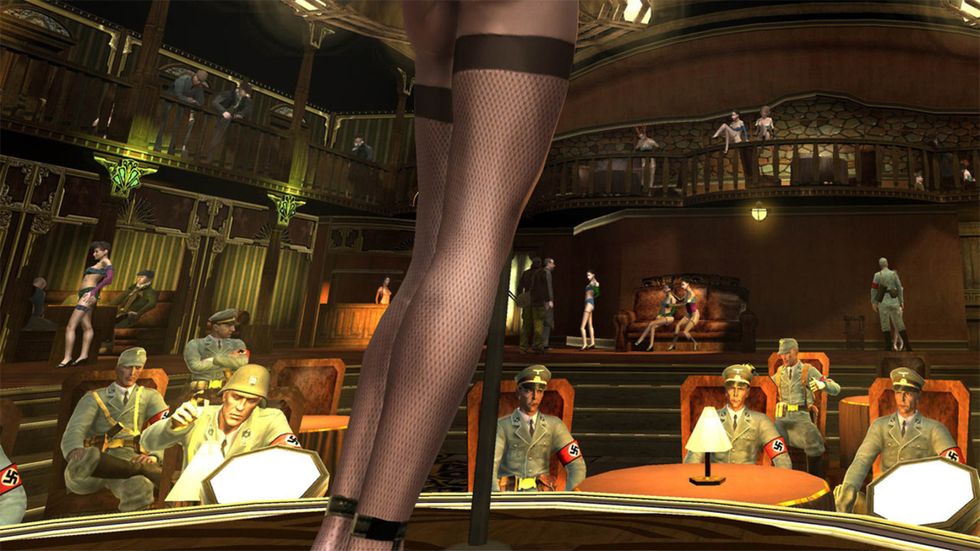
Electronic Arts
EA strikes again and, at a certain point, one needs to wonder if they’re purposely attempting to top their own scumbaggery. The Saboteur was a single-player, open world action-adventure game set during World War II in Nazi-occupied France. Given the premise, EA faced a tough decision on how to tastefully execute their DLC. Sure, they could add a few bonus weapons to take down the Nazis with extra flair, or maybe throw in an extra side-mission, but wouldn’t that be generic?
So EA went the classy route and added DLC boobs. Which is to say, if you visit the in-game night club without owning the DLC, the strippers will be wearing tassles over their nipples. Buying the DLC (or purchasing the game new at release, which included the necessary code) resulted in the tassles being removed, so you could experience some poorly rendered virtual nipples in all their glory. Yes, EA is literally everything wrong with the gaming industry.
Everything in The Sims 4
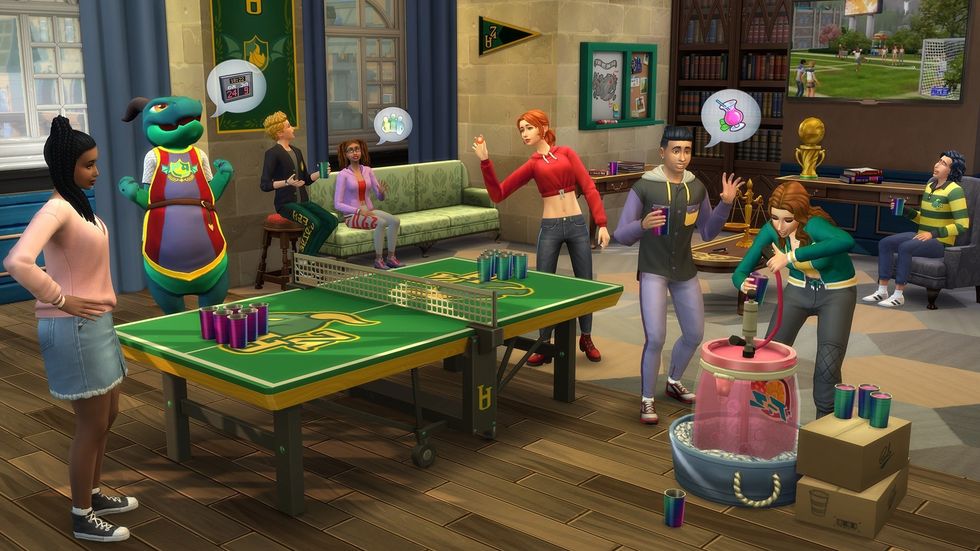
Electronic Arts
The Sims might be the best life-sim franchise in video games, but sadly, it also happens to be made by EA. This means that while the first three Sim games were self-contained, by the time The Sims 4 came out, EA had already realized that they could milk players with endless DLC instead of just providing fun gameplay experiences that people would feel good about spending money on in the first place.
Thus, The Sims 4 is less a game and more a series of compounding DLC packs. Want your Sims to have animals? You need to buy the Cats and Dogs DLC expansion. Want your Sims to be a professional “content creator.” Well then you need to buy the Get Famous DLC pack. Half of the DLC packs are just clothes. It’s an absolute trash move on EA’s part, and as such, The Sims 4 is one of the only games where you’re almost morally obligated to illegally download it.
Elder Scrolls Horse Armor
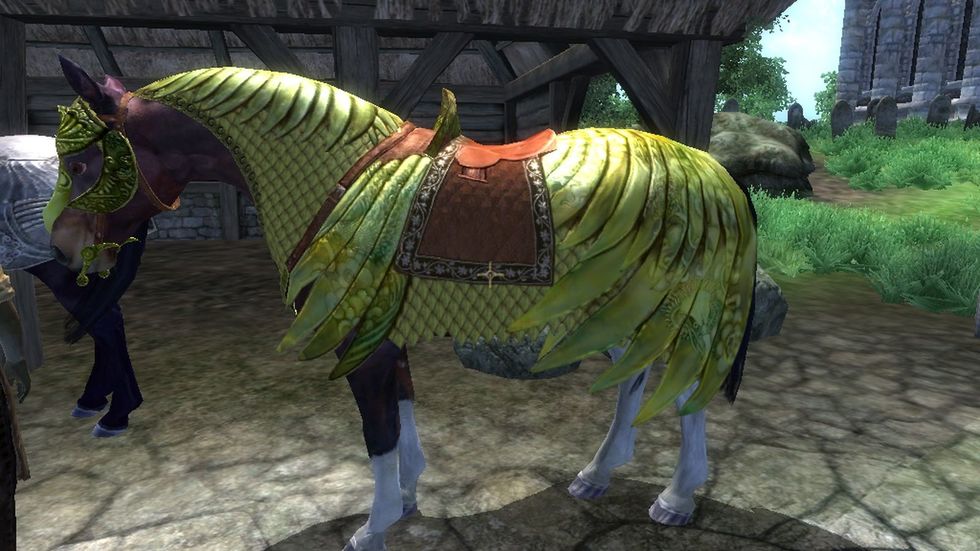
Bethesda
When The Elder Scrolls: Oblivionreleased in 2006 and offered players the option to spend roughly $2.50 on virtual golden horse armor in one of the first console game DLC options ever available, gamers were very upset. “How dare they make you pay beyond the purchase price of the game,” gamers seethed. In retrospect, the Horse Armor was hardly offensive compared to some of the DLC shenanigans that publishers have pulled more recently. Still, all those awful DLC practices, from disc-locked content to loot boxes can, to some extent, be traced back to the Horse Armor.
So, in all sincerity, the Horse Armor can go f*ck itself. And while Oblivian may have been published by Bethesda, let’s just make it clear that EA can go f*ck themselves too.
- A Defense of “Mass Effect: Andromeda” – Popdust ›
- There’s Something Wrong with LEGO Super Mario – Popdust ›
- Super Smash Fans React Very Maturely to Byleth from Fire Emblem … ›
- The 10 Most Anticipated Games of 2021 – Popdust ›
- The 10 Worst Video Games of All Time – Popdust ›
- 8 Amazing Black Video Game Characters – Popdust ›
- 6 Fantastic New Video Games to Play This Month (March, 2021) – Popdust ›
- 8 Video Games So Bad They Got Canceled – Popdust ›













